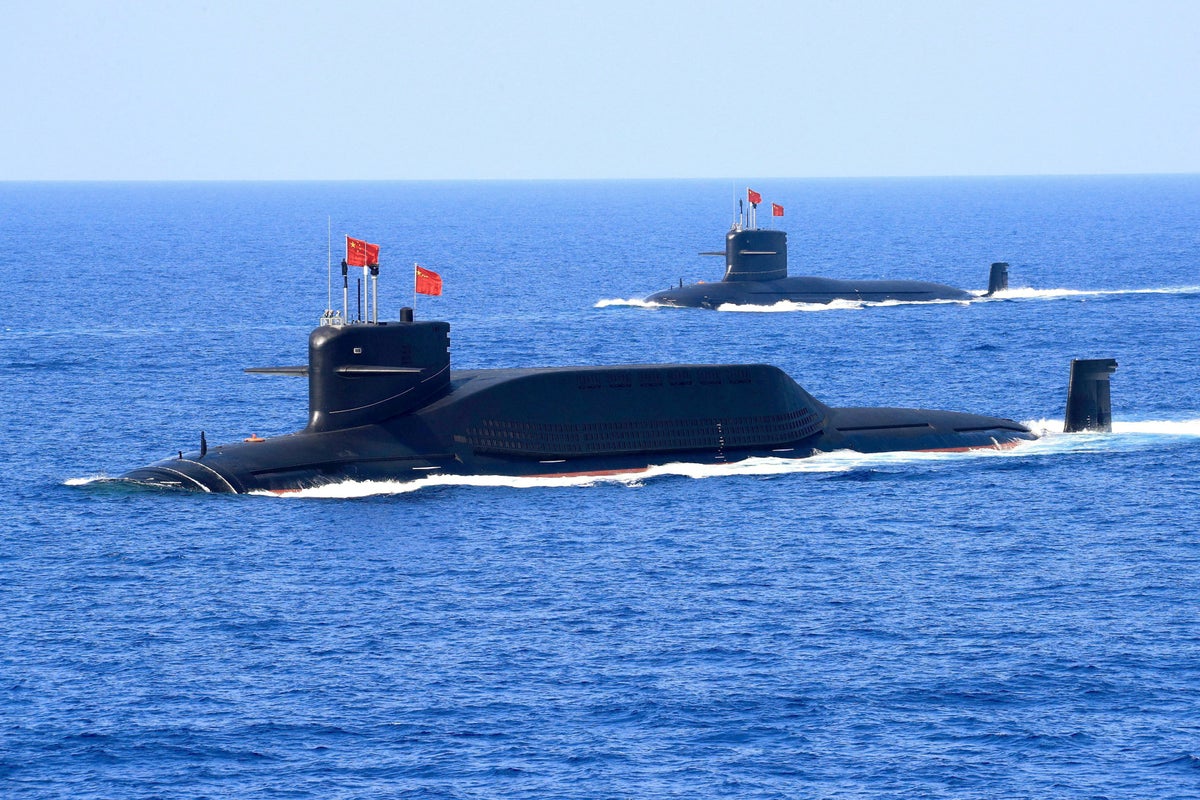
Support truly
independent journalism
China has suspended nuclear arms control talks with the US in protest against Washington’s weapons sales to Taiwan, the Asian superpower said on Wednesday.
Beijing, which considers Taiwan a part of its territory, said Washington’s arms sales to the island had "seriously compromised the political atmosphere for continuing the arms control consultations”.
The US House of Representatives recently approved $500m in military funding for Taiwan to boost deterrence against China, The Guardian reported.
"Consequently, the Chinese side has decided to hold off discussion with the US on a new round of consultations on arms control and non-proliferation. The responsibility fully lies with the US," Lin Jian, a spokesperson for the Chinese foreign ministry, told a regular news briefing.
The suspension of talks deals a potentially serious setback to global arms control efforts, with Beijing joining Moscow in refusing to discuss with Washington measures to contain a nuclear arms race.
The US, which last month declared the possibility of deploying more strategic nuclear weapons to deter Russia and China, currently possesses about 3,700 nuclear warheads, according to the Stockholm International Peace Research Institute. Russia and China’s stockpiles are estimated at 4,500 and 410, respectively.
The US, Taiwan’s main international ally and largest arms supplier, expressed disappointment over the decision as it reiterated its willingness to engage in dialogue.
"We think this approach undermines strategic stability, it increases the risk of arms race dynamics,” US State Department spokesperson Matthew Miller said.
"Unfortunately, by suspending these consultations, China has chosen not to pursue efforts that would manage strategic risks and prevent costly arms races, but we the United States will remain open to developing and implementing concrete risk-reduction measures with China."
Taiwan has been protesting Chinese military activity near the island, not least frequent missions by warplanes and warships, and leans on the US for weapons supplies even in the absence of formal diplomatic ties with the country.
China considers Taiwan a part of its territory and president Xi Jinping has threatened to “reunite” the island with the mainland by force if necessary, while the democratically-elected government of Taiwan says only the island’s people can choose their future.
Beijing’s claim to be the only legitimate Chinese government is known as the One China Principle, and this has been accepted or acknowledged by all but a handful of nations who would otherwise risk being cut off from trading with the mainland. The US formally acknowledges the One China Principle but maintains close informal relations with Taiwan.
As Donald Trump gains ground in the presidential race, Taiwan’s dependency on the US seems to be under threat as the Republican candidate has suggested the island pay Washington for protection against China.
“Taiwan should pay us for defence,” the former president said in an interview with Bloomberg Businessweek. “You know, we’re no different than an insurance company.”
Mr Trump’s remarks, made public on Tuesday, add uncertainty to his approach to Taiwan at a time when his running mate, JD Vance, has described China as the “biggest threat” to the US.
President Joe Biden has said he would send US troops to the island if China attempted to forcibly reunify it with the mainland.
Premier Cho Jung-tai responded to Mr Trump’s remarks saying Taiwan was “willing to take on more responsibility” and would defend itself.
Taiwan’s de facto embassy in Washington said it was in the interest of the US and the international community to preserve peace and stability in the Taiwan Strait as it was an indispensable part of global prosperity.
“As the threat of military coercion increases, Taiwan is doing its part by actively strengthening deterrence capabilities with the support of the US under the Taiwan Relations Act,“ the Taipei Economic and Cultural Representative Office said.







